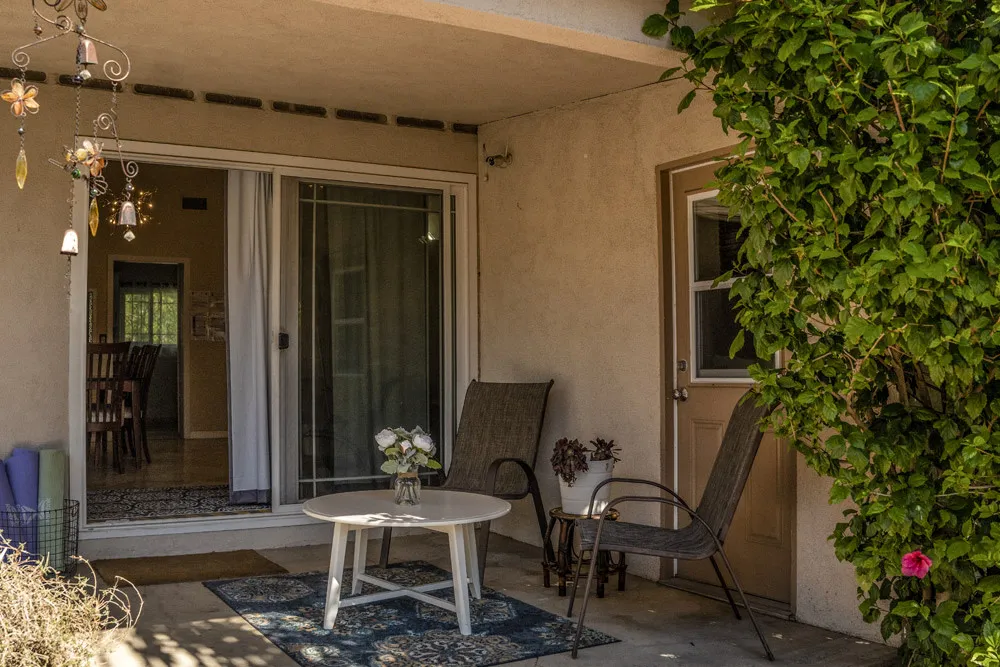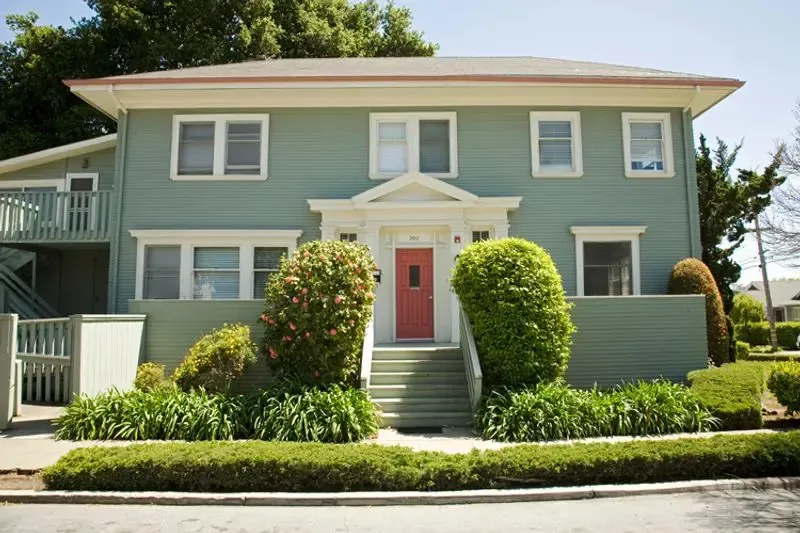Explore leading opioid rehab centers and treatment facilities in Los Angeles and nearby areas. Opioid addiction treatment centers offer comprehensive programs that include medically assisted detox, evidence-based therapies such as cognitive behavioral therapy, and ongoing pain management support. These facilities are dedicated to helping individuals safely overcome physical dependency, address the root causes of opioid use, and rebuild healthy, substance-free lives. Find the best opioid treatment centers focused on empowering recovery, restoring relationships, and supporting long-term wellness.
Ads
More Info
Advertisement Disclosure
Our website is funded by advertisers who pay for prominently labeled placements.
Read More193 Rehab Centers were found
Filters
Locations
- Los Angeles(+98)
- Culver City(+14)
- Westlake Village(+13)
- Woodland Hills(+11)
- Beverly Hills(+10)
- Santa Monica(+9)
- Sherman Oaks(+7)
- West Hollywood(+6)
- Malibu(+5)
- Chatsworth(+5)
- Pasadena(+5)
- Encino(+5)
- Redondo Beach(+4)
- Lancaster(+4)
- Reseda(+4)
- Studio City(+4)
- Northridge(+3)
- San Mateo(+3)
- Lynwood(+3)
- Vernon(+3)
- Van Nuys(+3)
- Tarzana(+3)
- North Hollywood(+3)
- Glendale(+3)
- Gardena(+3)
- Riverside(+3)
- Granada Hills(+2)
- Shadow Hills(+2)
- Venice(+2)
- Orange County(+2)
- Pomona(+2)
- West Hills(+2)
- Valley Village(+2)
- Burbank(+2)
- Brentwood(+2)
- Long Beach(+2)
- Sun Valley(+1)
- Torrance(+1)
- San Jacinto(+1)
- San Pedro(+1)
- Upland(+1)
- Whittier(+1)
- Toluca Lake(+1)
- Thousand Oaks(+1)
- Simi Valley(+1)
- Mission Viejo(+1)
- Acton(+1)
- Beaumont(+1)
- Wilmington(+1)
- Panorama City(+1)
- Anaheim(+1)
- Laguna Hills(+1)
- Inglewood(+1)
- Alhambra(+1)
- Rosemead(+1)
- Maywood(+1)
- Manhattan Beach(+1)
- Monterey Park(+1)
- Claremont(+1)
- Covina(+1)
- La Puente(+1)
- Pico Rivera(+1)
- San Fernando(+1)
- Azusa(+1)
- Santa Fe Springs(+1)
- Glendora(+1)
- Agoura Hills(+1)
- El Segundo(+1)
- Duarte(+0)
- Sunland(+0)
- Downey(+0)
- Cudahy(+0)
- El Monte(+0)
- Compton(+0)
- Hermosa Beach(+0)
- Cerritos(+0)
- Calabasas(+0)
- Bellflower(+0)
- Bell Gardens(+0)
- Avalon(+0)
- Arcadia(+0)
- Altadena(+0)
- Paramount(+0)
- South El Monte(+0)
- Walnut(+0)
- West Covina(+0)
- Santa Clarita(+0)
- San Gabriel(+0)
- San Dimas(+0)
- Rolling Hills(+0)
- Orange(+0)
- Hawaiian Gardens(+0)
- Palmdale(+0)
- Norwalk(+0)
- Montebello(+0)
- Lakewood(+0)
- South Pasadena(+0)
- Carson(+0)
- Hawthorne(+0)
Conditions
- Drug(+278)
- Alcohol(+219)
- Mental Health(+195)
- Opioid(+193)
- Cocaine(+184)
- Trauma(+180)
- Methamphetamine(+177)
- Benzodiazepines(+174)
- Heroin(+173)
- Prescription Drugs(+159)
- Depression(+152)
- Anxiety(+149)
- Xanax(+145)
- Synthetic Drugs(+138)
- PTSD(+133)
- Adderall(+131)
- Marijuana(+112)
- Bipolar(+109)
- Ecstasy(+104)
- MDMA(+99)
- Behavioral Health(+93)
- LSD(+93)
- Psychedelics(+91)
- Fentanyl(+71)
- Stress(+71)
- OCD(+69)
- Personality Disorders(+63)
- ADHD(+61)
- Gambling(+38)
- Eating Disorders(+35)
- Anorexia(+34)
- Binge Eating Disorder(+34)
- Bulimia(+33)
- Schizophrenia(+32)
- Gaming(+28)
- Internet Addiction(+27)
- Sex Addiction(+25)
- Burnout(+23)
- Pornography(+22)
- Shopping(+10)
- Narcissism(+8)
Insurances
- BlueCross BlueShield(+129)
- Aetna(+126)
- Anthem(+105)
- Cigna(+105)
- United Healthcare(+66)
- Humana(+63)
- Optum(+53)
- Medicaid(+53)
- MHN(+51)
- Magellan Health(+47)
- Kaiser Permanente(+39)
- Medicare(+31)
- GEHA(+31)
- ComPsych(+29)
- Highmark(+25)
- AmeriHealth(+13)
- Tufts Health(+11)
- Oscar(+9)
- CareFirst(+9)
- Molina Healthcare(+8)
- Intermountain Healthcare(+6)
- Beacon Health Options(+2)
- UMR(+2)
- NYSHIP(+2)
- ILWU(+2)
- Geisinger(+2)
- Empire Life(+2)
- Empire BCBS(+2)
- Bright Health(+2)
- GuideWell(+1)
Therapies
Comprehensive Opioid Addiction Treatment Programs in Los Angeles
Opioid addiction has become a nationwide crisis, with Los Angeles being one of the cities heavily affected by the epidemic. From prescription painkillers like OxyContin, Vicodin, and Percocet to illicit opioids like heroin and fentanyl, opioid dependency can lead to devastating consequences if left untreated. Professional opioid rehab centers in Los Angeles provide medical detox, therapy, and long-term recovery support to help individuals break free from opioid dependence and regain control over their lives. For those struggling with additional types of substance use, other addiction and mental health conditions can also be addressed in specialized programs.
Understanding Opioid Addiction: How It Develops and Why It’s So Powerful
Opioids work by binding to receptors in the brain, blocking pain and releasing a surge of dopamine that produces intense euphoria. While effective for short-term pain relief, long-term opioid use can rewire the brain’s reward system, making it difficult for users to feel pleasure without the drug. Over time, individuals develop tolerance, requiring higher doses to achieve the same effect.
Once dependence develops, quitting opioids becomes extremely difficult due to intense withdrawal symptoms and overwhelming cravings. Many users continue taking opioids not to get high, but simply to avoid the pain of withdrawal.
Types of Opioids and Their Effects
Opioids come in both prescription and illicit forms, each with its own risks and addictive properties. Many individuals also develop co-occurring addictions, such as benzodiazepine addiction or cocaine addiction, which can complicate treatment and recovery.
Prescription Opioids
- Oxycodone (OxyContin, Percocet) – One of the most commonly abused painkillers.
- Hydrocodone (Vicodin, Norco) – Frequently prescribed for pain but highly addictive.
- Morphine and Codeine – Used for severe pain but often misused.
- Fentanyl – A synthetic opioid 50 times stronger than heroin and a leading cause of overdose deaths.
Illicit Opioids
- Heroin – A street drug made from morphine, often injected or smoked.
- Street Fentanyl – Often mixed with heroin or pressed into counterfeit pills, making it especially dangerous.
- Opium – A less common but still addictive substance derived from the poppy plant.
No matter the form, opioid addiction can quickly spiral out of control, requiring professional intervention to safely detox and recover. For individuals battling other drug dependencies, such as polysubstance drug addiction, integrated care is crucial.
Signs That Opioid Rehab is Necessary
Opioid addiction often begins with legitimate medical use but can quickly escalate into dependency. Some warning signs that indicate the need for rehab include:
- Taking opioids in higher doses or more frequently than prescribed.
- Cravings or preoccupation with getting more opioids.
- Using opioids to avoid withdrawal symptoms rather than for pain relief.
- Doctor shopping or obtaining opioids illegally.
- Experiencing financial, legal, or relationship problems due to drug use.
- Overdosing or experiencing near-fatal opioid-related incidents.
In some cases, underlying trauma or mental health issues contribute to opioid use—seeking help at a center that also offers trauma-informed care can improve outcomes.
Opioid Withdrawal: What to Expect and How Rehab Helps
One of the biggest barriers to quitting opioids is the severe withdrawal process. Many individuals attempt to quit on their own, only to relapse due to the intensity of withdrawal symptoms.
Common Opioid Withdrawal Symptoms:
- Severe muscle pain and body aches
- Nausea, vomiting, and diarrhea
- Anxiety, depression, and agitation
- Cold sweats, chills, and fever-like symptoms
- Insomnia and restlessness
- Uncontrollable cravings for opioids
While opioid withdrawal is not usually life-threatening, it is highly uncomfortable and mentally exhausting, making professional detox the safest and most effective approach. Learn more about the different levels of care available for opioid addiction recovery in Los Angeles.
Medically Assisted Detox for Opioid Addiction
Most opioid rehab programs in Los Angeles start with medical detox, where professionals help individuals safely withdraw from opioids with the use of medication-assisted treatment (MAT). Various therapies and approaches may be incorporated to support physical and mental healing during this process.
Common Medications Used in Opioid Detox
- Methadone – Reduces cravings and withdrawal symptoms without producing a high.
- Buprenorphine (Suboxone, Subutex) – Blocks opioid effects while minimizing withdrawal symptoms.
- Naltrexone (Vivitrol) – Prevents opioids from producing euphoria, reducing the desire to use.
- Clonidine – Helps manage symptoms like anxiety, muscle pain, and agitation.
By easing withdrawal symptoms, these medications allow individuals to focus on recovery without the extreme discomfort of opioid detox.
Inpatient vs. Outpatient Treatment for Opioid Addiction
Opioid treatment options in Los Angeles include both inpatient and outpatient rehab programs. Inpatient rehab provides 24/7 medical supervision and structure for those with severe addiction, while outpatient rehab offers flexibility for those who need to balance treatment with work or family responsibilities. Both options may offer medication-assisted treatment and a full range of therapeutic services.
The Importance of Therapy in Opioid Recovery
Opioid rehab is not just about quitting the drug—it’s about understanding why addiction developed and learning new ways to cope with pain, stress, and emotions. Rehab centers in Los Angeles use evidence-based therapies such as:
- Cognitive Behavioral Therapy (CBT) – Helps individuals identify and change negative thought patterns that contribute to addiction.
- Dialectical Behavior Therapy (DBT) – Teaches emotional regulation and stress management skills.
- Group Therapy – Provides peer support and accountability.
- Trauma Therapy – Helps individuals who began using opioids as a way to cope with past trauma.
- Holistic Approaches – Activities such as yoga, meditation, and fitness support overall well-being.
Overdose Prevention and Harm Reduction Strategies
Because opioids have a high risk of fatal overdose, many rehab centers in Los Angeles focus on harm reduction education. Patients and families may receive naloxone (Narcan) training to reverse opioid overdoses and education on the dangers of street fentanyl and prescription drug misuse. Guidance on avoiding triggers and high-risk situations after rehab is also provided.
Life After Opioid Rehab: Relapse Prevention and Aftercare
Since opioid addiction rewires the brain, recovery is a lifelong process that requires continued care. Many rehab centers offer aftercare programs, including sober living homes, ongoing therapy, support groups like Narcotics Anonymous (NA), and employment and life skills training. For those facing multiple dependencies, such as marijuana addiction or benzodiazepine misuse, integrated aftercare planning supports lasting recovery.
Finding the Best Opioid Rehab in Los Angeles
With so many options available, choosing the right opioid rehab can feel overwhelming. Factors to consider include: whether the program offers medication-assisted treatment (MAT), if inpatient or outpatient rehab is the best fit, whether the facility provides dual diagnosis treatment for co-occurring mental health conditions, and what aftercare support is available post-treatment. Speaking with a treatment specialist can help individuals and families find the most effective rehab program based on their unique needs.
Frequently Asked Questions
How long does opioid rehab take?
Is opioid withdrawal dangerous?
Can I quit opioids without rehab?
Does insurance cover opioid rehab in Los Angeles?
Ads
More Info
Advertisement Disclosure
Our website is funded by advertisers who pay for prominently labeled placements.
Read More













































